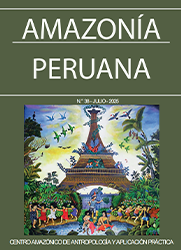Rebelling against invisibilisation. The identity question of the peruvian indigenous peoples as a political phenomenon
DOI:
https://doi.org/10.52980/jrj27v57Keywords:
coloniality of power, indigenous identity, de-indigenization, self-determination, plurinationalityAbstract
The article analyzes the identity question of Peruvian Indigenous peoples as a political phenomenon linked to the coloniality of power. Based on Aníbal Quijano’s theoretical framework, it examines how Indigenous identities have historically been shaped by processes of racialization, assimilation, and exclusion within the Peruvian nation-state. The process of de-indigenization, promoted through strategies of whitening and cultural Europeanization, coexisted with structural discrimination that limited the political and social participation of Indigenous peoples. The text highlights the emergence of Indigenous movements in response to the crisis of the oligarchic state and the impact of agrarian reforms and urbanization on the transformation of collective identities. Globalization and neoliberalization have reconfigured the struggle for recognition, driving demands for autonomy and self-determination under international frameworks such as ILO Convention 169. However, the inclusion of terms like plurinationality and multiculturalism in Latin American constitutions has not led to profound structural changes. Indigenous identity remains a contested political space, where communities seek autonomy in the face of states that continue to reproduce colonial power structures.
Downloads
References
Bengoa, J. (2000). La emergencia indígena en América Latina. Fondo de Cultura Económica.
Churata, M. (2016). Identidades amazónicas e interculturalidad crítica. Revista ISE, (4), 69-82.
Colajanni, A. (2018). Multiculturalismo y plurinacionalidad en América Latina: Desafíos y perspectivas. Ediciones Universitarias.
Del Águila, Alicia. (2011). Voto indígena y ciudadanía corporativa en el Perú, siglo XIX. Elecciones, 10(11), 91-117. https://doi.org/10.53557/Elecciones.2011.v10n11.04
Óscar Espinosa. (2010). Cambios y continuidades en la percepción y demandas indígenas sobre el territorio en la Amazonía peruana. Anthropologica, 28(28), 161–190.
Ferreira, R. (2014). Cuerpos colonizados: mujer andina y modernidad. Anthropológica, 32(32), 47–66.
Fraser, N. (2000). Rethinking Recognition. New Left Review, 3(3), 107–118. https://www.researchgate.net/publication/296363224_Rethinking_recognition
Galindo, A. y Burga, M. (1980). Apogeo y crisis de la República Aristocrática. DESCO.
García, M. (2021). El cuerpo-territorio en la resistencia de las mujeres awajún. FLACSO.
Ginex, M. (2022). Egemonia, un concetto di Gramsci da rileggere in chiave contemporanea. La Rivista Culturale.
Hall, S. (1996). Who Needs ‘Identity’? En S. Hall & P. du Gay (Eds.), Questions of Cultural Identity (pp. 1-17). SAGE.
Lugones, M. (2008). The coloniality of gender. En L. De Souza Lima, E. Otero Quezada & J. Roth (Eds.), Feminisms in movement: theories and practices from the Americas (pp. 35-58). Transcript Publishing.
Mannarelli, M. (2018). Sexualidades en disputa: género, poder y reconocimiento en el Perú republicano. Fondo Editorial de la PUCP.
Mejía, J. (2019). Sociedad, individualismo y modernidad en el Perú. Sociologías, 21(50), 260–285. https://doi.org/10.1590/15174522-02105014
Mignolo, W. (2007). La idea de América Latina: la herida colonial y la opción decolonial (1ra ed.). Gedisa.
Montoya, R. (1998). Todas las sangres: ideal para el futuro del Perú. Estudos Avançados, 12(34), 235–264. https://doi.org/10.1590/S0103-40141998000300023
Pajuelo, R. (2007). Comunidades indígenas y Estado: disputas por la representación en los Andes peruanos. Revista Andina, 44(2), 257–286.
Quijano, A. (2006). El movimiento indígena y las cuestiones pendientes en América Latina. Argumentos Estudios críticos de la sociedad, 50(2006), 51-77. https://argumentos.xoc.uam.mx/index.php/argumentos/article/view/500/499
Rivera Cusicanqui, S. (2010). Ch’ixinakax utxiwa: una reflexión sobre prácticas y discursos descolonizadores. Tinta Limón.
Segato, R. (2016). La guerra contra las mujeres. Traficantes de Sueños.
López, S. (2025). El Estado oligárquico en el Perú: un ensayo de interpretación. Revista Mexicana de Sociología, 40(3), 991-1007. https://doi.org/10.2307/3539674
Svampa, M. (2016). Debates latinoamericanos: Indianismo, desarrollo y buen vivir. Edhasa S.A.
Taylor, C. (1994). El multiculturalismo y la política del reconocimiento. FCE.
Vigoya, M. (2016). Blanqueamiento social, nación y moralidad en América Latina. En S. Messeder, M. Castro y L. Moutinho (Eds.), Enlaçando sexualidades: uma tessitura interdisciplinar no reino das sexualidades e das relações de gênero (pp. 17-39). EDUFBA.
Viteri Gualinga, C. (2012). Buen Vivir: una perspectiva desde los pueblos amazónicos. FLACSO.
Walsh, C. (2009). Interculturalidad, descolonización del Estado y del conocimiento (Nachdruck). Ediciones del Signo.
Downloads
Published
Issue
Section
License
Copyright (c) 2025 
Esta obra está bajo una Creative Commons Attribution 4.0 International License.

This work is licensed under a Creative Commons Attribution 4.0 International License.
















 Av. González Prada 626, Magdalena del Mar
Av. González Prada 626, Magdalena del Mar